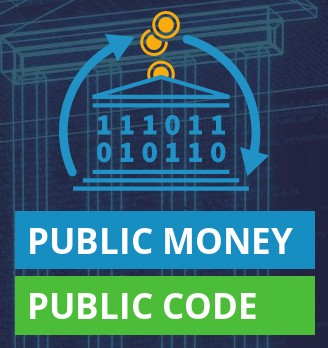Public Money Public Code: a good policy for FSFE and other non-profits?
FSFE has been running the Public Money Public Code (PMPC) campaign for some time now, requesting that software produced with public money be licensed for public use under a free software license.
Many non-profits and charitable organizations receive public money directly from public grants and indirectly from the tax deductions given to their supporters. If the PMPC argument is valid for other forms of government expenditure, should it also apply to the expenditures of these organizations too?
Where do we start?
A good place to start could be FSFE itself. Donations to FSFE are tax deductible in Germany, the Netherlands and Switzerland. Therefore, the organization is partially supported by public money.

Personally, I feel that for an organization like FSFE to be true to its principles and its affiliation with the FSF, it should be run without any non-free software or cloud services.
However, in my role as one of FSFE's fellowship representatives, I proposed a compromise: rather than my preferred option, an immediate and outright ban on non-free software in FSFE, I simply asked the organization to keep a register of dependencies on non-free software and services, by way of a motion at the 2017 general assembly:
The GA recognizes the wide range of opinions in the discussion about non-free software and services. As a first step to resolve this, FSFE will maintain a public inventory on the wiki listing the non-free software and services in use, including details of which people/teams are using them, the extent to which FSFE depends on them, a list of any perceived obstacles within FSFE for replacing/abolishing each of them, and for each of them a link to a community-maintained page or discussion with more details and alternatives. FSFE also asks the community for ideas about how to be more pro-active in spotting any other non-free software or services creeping into our organization in future, such as a bounty program or browser plugins that volunteers and staff can use to monitor their own exposure.
Unfortunately, it failed to receive enough votes (minutes: item 24, votes: 0 for, 21 against, 2 abstentions)
In a blog post on the topic of using proprietary software to promote freedom, FSFE's Executive Director Jonas Öberg used the metaphor of taking a journey. Isn't a journey more likely to succeed if you know your starting point? Wouldn't it be even better having a map that shows which roads are a dead end?
In any IT project, it is vital to understand your starting point before changes can be made. A register like this would also serve as a good model for other organizations hoping to secure their own freedoms.
For a community organization like FSFE, there is significant goodwill from volunteers and other free software communities. A register of exposure to proprietary software would allow FSFE to crowdsource solutions from the community.
Back in 2018
I'll be proposing the same motion again for the 2018 general assembly meeting in October.
If you can see something wrong with the text of the motion, please help me improve it so it may be more likely to be accepted.
Offering a reward for best practice
I've observed several discussions recently where people have questioned the impact of FSFE's campaigns. How can we measure whether the campaigns are having an impact?
One idea may be to offer an annual award for other non-profit organizations, outside the IT domain, who demonstrate exemplary use of free software in their own organization. An award could also be offered for some of the individuals who have championed free software solutions in the non-profit sector.
An award program like this would help to showcase best practice and provide proof that organizations can run successfully using free software. Seeing compelling examples of success makes it easier for other organizations to believe freedom is not just a pipe dream.
Therefore, I hope to propose an additional motion at the FSFE general assembly this year, calling for an award program to commence in 2019 as a new phase of the PMPC campaign.